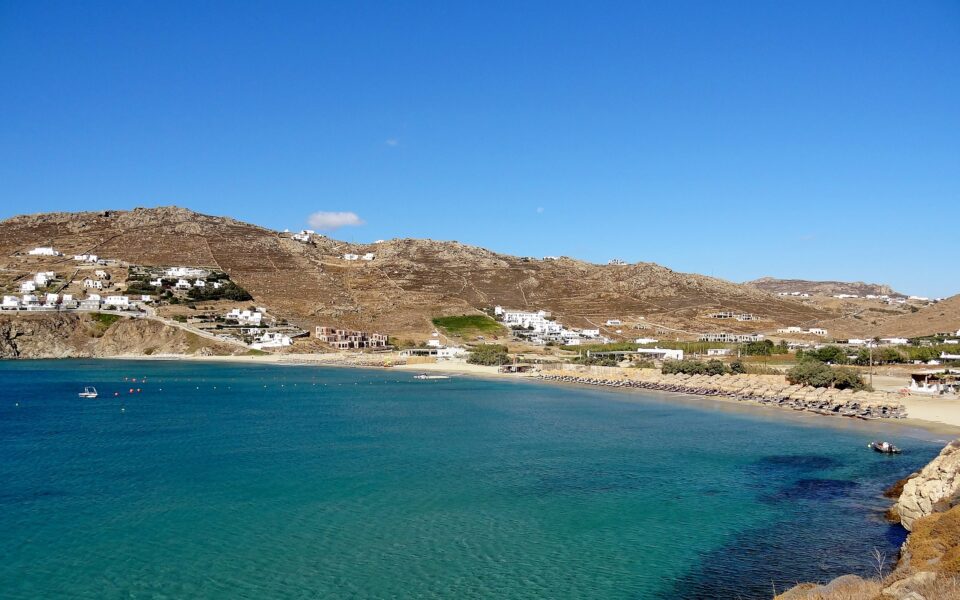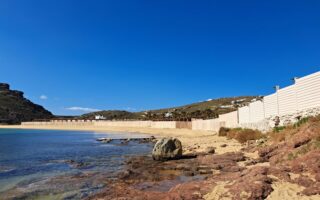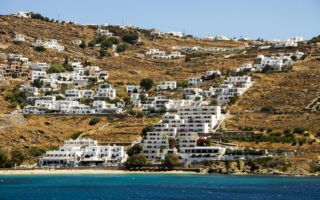New round of fines on Mykonos
Inspections reveal further illegal building activities by businesses on the island

A new round of inspections by the Environment Ministry began on Mykonos a few days ago, focusing on large coastal businesses on the island that had been checked for planning violations in mid-April.
The fine for Lohan Beach House in Kalo Livadi stands out as it is close to 2 million euros. As it turns out, behind the main establishment a complex of auxiliary buildings and structures has been created which are illegal in their entirety, occupying a total of 970 square meters.
Given that Principote was found to be attempting to conceal cement violations with sand, the prosecutor has formed a fresh case file against it. The new inspections followed those in mid-April concerning urban planning irregularities, which included Principote at Panormos and Nammos at Psarou.
Apart from Lohan, inspectors also recorded infringements, albeit significantly smaller ones, by other establishments, including Pasaji in Ornos, which was fined €360,570 for construction and €179,730 for maintenance (total €540,388 euros) of illegal buildings.
The Alemagou restaurant in Ftelia was hit with fines of €288,870 for construction and €143,530 for maintenance (total €432,400).
Solymar at Kalo Livadi Beach was fined €166,735 for illegal constructions and €81,267 for their maintenance (a total of €248,000).
SantAnna at Paranga Beach was fined €11,944 for illegal constructions and €5,970 for their maintenance (total €17,914).
Finally, JackieO’ in the Kastro area was found to have committed only very minor infringements and was fined €6,106 and €2,454 respectively (total €8,560).
According to reports, a few more autopsies are needed to complete the cycle of inspections that began in early April.
These include a further one for Nammos, pertaining to the remaining fixed facilities. Business representatives now have the option to object to arbitrary acts before the Central Planning Board (KESYPOTHA) and/or request compliance, if they so choose.
The findings lead to some conclusions aside from any planning errors that may be there. These include the conclusion that the illegal facilities, for which businesses reached settlements in the past, are significantly bigger than those that preceded them, which were within the bounds of the law. Secondly, these settlements lead nowhere as they are not controlled or checked by anyone.





